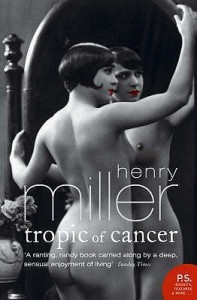 Title: Miami Blues (Goodreads)
Title: Miami Blues (Goodreads)
Author: Charlies Williford
Series: Hoke Moseley #1
Published: Penguin, 1984
Pages: 284
Genres: Pulp
My Copy: Paperback
Buy: Amazon, Book Depository, Kindle (or visit your local Indie bookstore)
After landing in Miami, Freddy Frenger Jr. (or Junior as he prefers to be called) steals three wallets and begins to plan his new life. While leaving the airport he snatches a suitcase and leaves a corpse of a Hare Krishna behind. Detective Hoke Moseley is on the case; chasing Junior and his new hooker girlfriend through luxury hotels and the suburban streets of Miami.
If this sounds really familiar then you’ve probably seen the 1990 movie of the same name starring Alec Baldwin and Jennifer Jason Leigh. While there are some major differences to the two, the majority of the book is exactly the same. I’m a little disappointed when I found out this was the first in the Hoke Moseley series, because I always thought of the detective as a supporting role. In the movie Junior steals Moseley’s badge and starts pretending to be a cop to con people; this was the best part of the movie. Sadly in the book there isn’t much of that going on.
Charlies Williford is an author of fiction, poetry, an autobiography, and literary criticism but he is best known for his hard-boiled writing. I think it is weird that he was a poet and literary critic as well as pulp writer, but then again I really shouldn’t be. It’s just an interesting fact about the author. When you think 1980’s hard-boiled novels, Miami Blues is probably going to be one of the top nominations on that list. Charlies Williford was such a prolific writer, with over forty novels published, it is kind of sad that he is best known for the Hoke Moseley series that he wrote very late in his life. I wonder what some of his other books were like, there seems to be a whole lot of hard-boiled novels in the 1950’s and 1960’s that look interesting.
This book is an example of the noir sub-genre Florida glare which is basically a crime novel set in Florida where the heat and the culture play a role in the story as well. Noir is typically associated to LA and there have been some writers out there that wanted to depict Florida as the perfect location for crime stories as well. Some examples of this include the Travis McGee (by John D. MacDonald), Jack Ryan (by Elmore Leonard), and Dexter Morgan (by Jeff Lindsay) series and I’m sure many more. It is an interesting concept though do we really need another genre? I like how the heat of Florida plays a part in the book and the environment is almost like a supporting character.
This was a quick read and one of the rare cases where I think I prefer the movie over the book. I wonder if there are any more noir novels where a character pretends to be a cop in order to con people; I’m sure there are plenty out there, I like the concept and would like to read more of them. I think I’ll have to try another Charlies Williford, maybe something earlier. Does anyone want to recommend me a good Charlies Williford novel?

 Title: Tropic of Cancer (
Title: Tropic of Cancer ( Title: Questions of Travel (
Title: Questions of Travel ( Title: The Amazing Adventures of Kavalier & Clay (
Title: The Amazing Adventures of Kavalier & Clay ( Title: Fadeout (
Title: Fadeout ( Title: The Lost City of Z (
Title: The Lost City of Z ( Title: You (
Title: You ( Title: Twilight (
Title: Twilight ( Title: Grifter’s Game (
Title: Grifter’s Game (